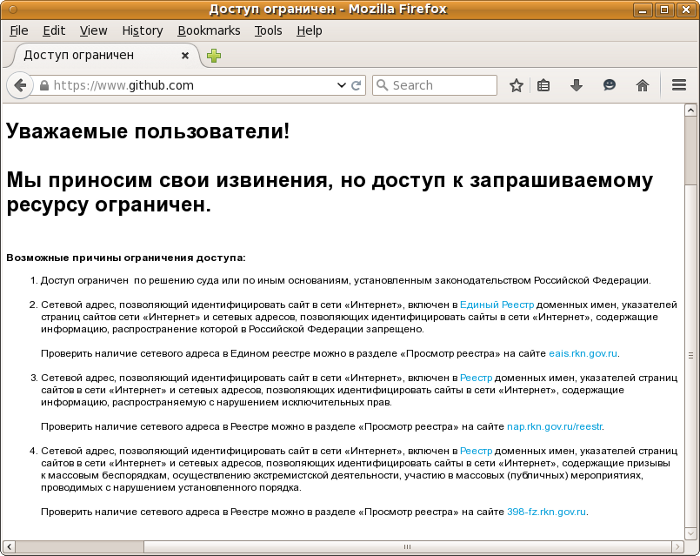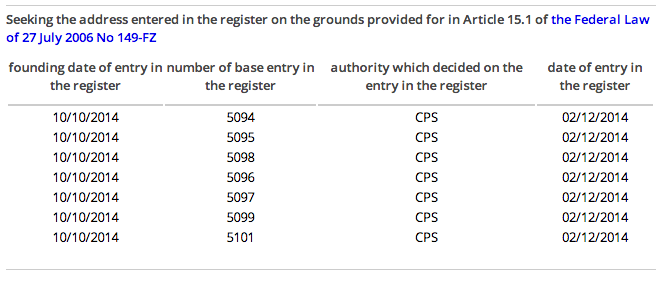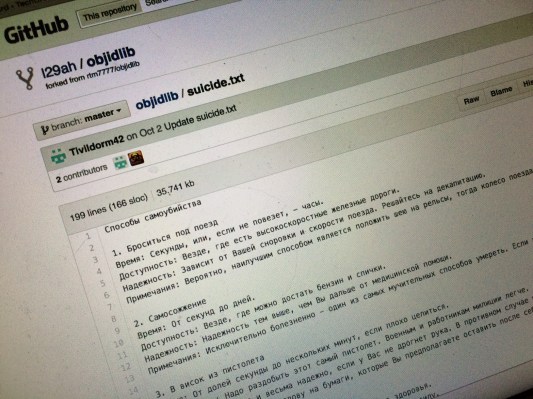Developers in Russia are putting up their feet today — that is, after they have finished stomping around in frustration for a little while. It’s emerged that Russia’s regulator RosComNadzor has blocked GitHub after the popular software and coding collaboration platform was found to be hosting content related to suicide — specifically, see this file that details 32 ways to kill yourself.
The “block” effectively amounts to an order to ISPs to restrict access to the site. And because GitHub works on HTTPS, providers can only comply by restricting access to the entire site, rather than individual pages. According to Russian blog Meduza, several leading ISPs have already complied with the order, including Beeline, MTS, MGTS and Megafon.
The block reignites the debate over how Russia’s government decides what is and what is not appropriate Internet content for people in Russia. The country’s firewall, when it was originally raised in 2012, was controversial not only because of concerns that it would be used against freedom of speech (especially in cases when that speech was critical of the state), but also because it was deemed to be too heavy-handed in how it would get implemented.
Here are some shots of what some people in Russia are seeing when they try to visit GitHub pages:


This is not the first time that GitHub has been blocked in recent months by Russia’s censors. According an OpenNet post linked on a HackerNews discussion about the block, GitHub was also blacklisted for a brief interval in October.
According to a statement from Maxim Ksenzov (“Deputy Head of the Federal Service in charge of permitting activities, validation and supervision in the sphere of mass communications”), it seems that GitHub didn’t comply with requests made in October to take down the offending content; hence the new block.
Here is the list of the blocked GitHub pages on the regulator’s site, translated with Google Translate. The RCN lets you search for what pages and sites are getting blacklisted. The listing includes the initial October block date, as well as the new order dating from last night:

If you think that a suicide-related block in Russia sounds familiar, you are not wrong. YouTube faced a similar problem in February 2013 over a video that was deemed to be too closely linked to suicide themes.
We’ve reached out to GitHub and will update as we learn more.
